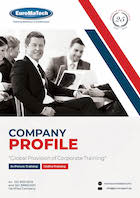The Significance of Critical Thinking in Modern Leadership
Critical Thinking has remained a sought-after skill in leadership for years. The American Management Association, in 2010, indicated that 68% of executives considered Critical Thinking vital for managers, with 75% predicting its increasing value. However, the World Economic Forum, as of 2023, announced a global deficit in this crucial management skill, with deficiencies in communication and creativity following closely.
Understanding Critical Thinking
Critical Thinking is a higher-order cognitive process encompassing analysis, evaluation, and synthesis of information to make well-informed decisions. This process moves beyond merely accepting facts, with thinkers actively assessing ideas, arguments, and evidence. Its roots can be traced to philosophical reasoning across various cultures, including the methodologies of iconic figures like Socrates, Francis Bacon, and John Locke.
The UK’s Chartered Institute of Professional Development (CIPD) links Critical Thinking to evidence-based decision-making, emphasizing reliance on tangible evidence rather than personal experiences or anecdotes.
The Implication of Critical Thinking in Decision Making
Given the enormous implications of managerial decisions on employees’ welfare globally, Critical Thinking is paramount. Essential components of Critical Thinking include:
- Analysis: Deconstructing information to understand core concepts.
- Evaluation: Assessing the credibility of information and sources.
- Reasoning: Utilizing logical deductions based on available evidence.
- Problem-Solving: Systematically identifying and evaluating potential solutions.
- Open-mindedness: Being receptive to diverse perspectives.
- Reflection: Continuously refining thinking processes and recognizing biases.
- Communication: Clearly expressing thoughts with supportive evidence and reasoning.
Modern leaders emphasize Critical Thinking as a catalyst for innovation and growth. The Centre For Evidence-Based Management underlines the multi-faceted sources of information that a manager must scrutinize and validate for effective decision-making.
Emotional Intelligence & Critical Thinking
Beyond the 20th Century, thinkers like John Dewey stressed reflective thinking. Such introspective analysis leads to Emotional Intelligence, where understanding one’s biases becomes vital. Researchers like Daniel Kahneman differentiate between instinctual (System 1) and analytical (System 2) thinking. While System 1 offers swift decisions, System 2 promotes deliberate analysis. Both are instrumental, but balancing them is essential to avoid group-think and impulsive decisions.
Cal Newport, a technology researcher, champions deep, focused thinking, critical for uncertain times.
Conclusion
Critical Thinking is indispensable across various life spheres, from education to everyday choices. It fosters informed decision-making, cognitive bias avoidance, and a comprehensive world understanding.
However, with the ever-accelerating pace of change, the concept of Critical Thinking is evolving. Leaders today face a world characterized as VUCA (Volatile, Uncertain, Complicated, Ambiguous). Rapid technological advancements, like the explosive growth of AI platforms such as Chat GBT, demand agility in our thinking.
In a rapidly transforming environment, relying solely on logic for human-centric workplace decisions is insufficient. Leaders must blend Emotional Intelligence with Critical Thinking, constantly critiquing their knowledge and understanding.
For those seeking to harness the combined power of creativity, critical thinking, and innovation, enrolling in EuroMaTech training courses on Creativity, Critical Thinking & Problem Solving is highly recommended.

